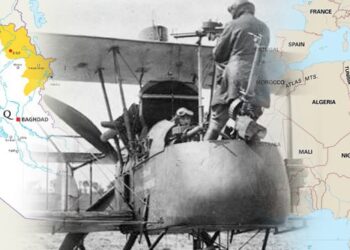Mohammed Musa Mohammed – Secretary of the Kurdish Left Party in Syria
Kurdistan follows the second world war has been divided among several countries, the most important of which are four countries in the region namely Iran, Turkey, Iraq and Syria, as well as parts that annexed Russia during its wars with the Ottoman Empire. Thus, the Kurdish people became one of the largest peoples that have until now been deprived of all their national rights. And obliterate its culture.
The destiny of the Kurdish people in Syria was linked to the fate of the rest of the Syrian people under the Sykes-Picot treaty of 1916. Today, the Kurdish is one of the basic components of the Syrian people and inhabits its main areas in northeastern Syria, on the Syrian (Jazeera, Kobane, Afrin, and large numbers of them inhabit a large city of Hallab, Damascus, Hamaa, Lattakia, and Horran region).
Since the last quarter of the twentieth century, the number of Kurds in the provinces of Damascus and the internal governorates has increased because of the migration of unemployed youth who were looking for a living, and emigrated large numbers of them to various European countries, especially Germany because of the policy of national oppression practiced by sequential governments on Syria. The Kurdish national presence in the governorates of Damascus, Lattakia and other internal governorates is largely due to the days of the Kurdish leader Salah al-Din al-Ayyubi, which belong to more than 800 years ago.
As for the number of Kurds in Syria, there are no official statistics on the number, since the authority in Syria registers all residents of Syrian land Arabs, but the latest estimates indicate that the Syrian Kurds increased about 15% of the population of Syria, about three million people.
The most important cities in the Syrian Kurdish areas are the city of Qamishli, which is located on the Syrian-Turkish border and adjacent to the historical city of Nisibin in Turkey, the city of Derek, which was Arabized to the city of Al-Malikya, and the city of Trabe Sbei, which was Arabized to Qahtaniyah, and the town of Gel Agha The city of Amouda and the city of Darbasiyya and the city of Sri Kanye, whose name has been Arabized to Ras Al Ain. These cities are all located on the Syrian island, the city of Kobany, Afrin, Rajo and others in the province of Aleppo.
Most of the Kurds live in the countryside and work mainly in agriculture. Some of them work in livestock and cattle breeding. The most important crops in the Kurdish areas are the cultivation of all kinds of cereals, cotton and vegetables. The Upper Afrin region is considered one of the most important olive growing areas in Syria.
In the religious sense, the vast majority of the Syrian Kurds are Sunni Muslims and followers of the Shafi’i sect. Among them is a small group of Yazidi sects estimated at about 25,000 people living in a group of villages in the island and Afrin region.
It should be said that all the Kurdish parties in Syria are banned and unlicensed because there is no party law in Syria. It operates in secret, but it is known that the majority of the Syrian parties, including the Kurdish ones, have been operating openly since 2000. Kurdish politicians for carrying out political activities such as holding protests in the capital Damascus or organizing political celebrations and seminars have been jailed.
The Kurdish National Movement is making a great effort to strengthen the national cohesion between the Kurds and other Syrian people with their different national, religious and sectarian affiliations. It can be said that they are making remarkable progress in this direction, despite the difficulty of conveying their political discourse and the complexity of the internal situation. The components of the Syrian people and the political forces in Syria have begun a new phase characterized by understanding and realistic reality of the Kurdish.
The Kurdish national movement in Syria believes that the solution of the Kurdish issue in Syria is in Damascus and not elsewhere, and that it is fully linked to resolving the democratic issues.





























































